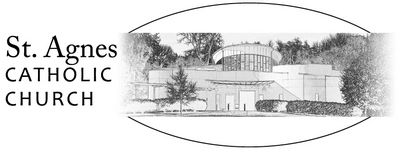Catholic Corner
May 30, 2021
The concept of a God who is both simultaneously one and three is one of the most difficult in our theology. We could go into great detail and provide intricate explanations using technical terms OR we could explain the Trinity the way early Christians did: from their experience of God as Trinity, in prayer, in liturgy, and in their daily lives.
When Christians think of God, we think of the Trinity: God Father, God Son, God Holy Spirit. We think of God this way because it has been revealed to us in the experience of Jesus. Remember that Jesus is the revelation of God. The God that Jesus revealed is a Trinitarian God, that is, a God who is three in one.
This trinitarian God is a community of persons, a relationship of persons. Consider this: if we are made in the image of God (that’s what Genesis chapter 1 tells us) and God is a communion of persons then we are most fully human when we are in relation, in community. To understand God as Trinity helps us understand ourselves as well. The Trinity reveals what it means to be truly human as image of God.
So let’s start with the Son of God. When we speak of God Son we are speaking about the second person of the Trinity. Another name for the second person of the Trinity is the Word, Think of the Gospel of John: In the beginning was the Word . . . When we talk about the Incarnation we are talking about the Second Person of the Trinity, it is the Son or the Word who becomes flesh. Jesus is incarnation or the becoming flesh of the second person of the Trinity. When the Word became flesh, the Son of God entered into history. We say that Jesus, the incarnation (the enfleshment) of the Son of God, is both fully human and fully divine. We say this because this was the experience of the early Christians and it is the experience of Christians today!
Wow!! This sounds really complicated!! But it’s not. It’s based on the experiences of the followers of Jesus and on the experiences of Christians ever since. For example, in the Book of Acts and in the Letters of Paul we see that early Christians had an experience of Jesus as both human and divine. Paul has an experience of being saved by Christ, of becoming a new creation in Christ. Remember that only God can save! Time and again in the Book of Acts the early followers of Jesus pray to him. We only pray to God. Yet also time and again these same early followers imitate Jesus, devote their lives to the imitation of Jesus. Don’t we do the same? Aren’t we called to be like Christ? Human beings imitate human beings, the divine is beyond our ability. Through their experiences these early Christians understand Jesus as BOTH human and divine. Faith is experiential (as well as intellectual) and the same experience happens to us today as happened to these early Christians: we have been made new creations, we have been saved, we are called to imitate Christ.
To say it again, we understand God as Trinity because Jesus, the incarnation of the Son of God (second person of the Trinity) reveals God to us this way. Jesus reveals a God who is a communion of persons. The Council of Nicaea (Nicene Creed) chose specific phrases from their experience of God to explain this: God from God, begotten NOT made, one in being with the Father. What statements we can make about the inner life of God, we can make because they are revealed in Christ through the Spirit. We can say that all three are “one in being” and are three persons. We can say that the Son is begotten by the Father from all eternity – Begotten is not the same as made. We can say that the Father, the Son and the Spirit are consubstantial, that is, they are of the same substance or that they share one being. Another way of saying this is the Father is unbegotten, the Son is begotten and the Spirit is the love between Father and Son. Note what we are doing here: We are defining them in relation to one another (remember to talk about God as Trinity is to talk about relation). To exist as God is to be Father, who begets the Son and who breathes forth the Spirit. Think of it this way: WHAT Father, Son and Spirit are is the same; WHO each is, is unique.
If nothing else, keep this in mind: the understanding of God as Trinity is a result of the experience of the earliest Christians who received this revelation of God through Jesus. They expressed it in how they prayed, as we do today (to the Father, through the Son in the Spirit), in how they baptized as we do today (in the name of the Father and the Son and the Holy Spirit) and how they and we have come to understand who we are in relation to God, most fully who we are when we are in relationship.
